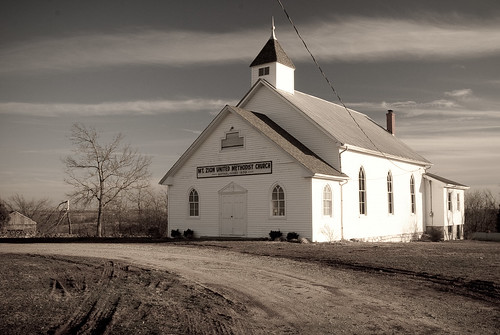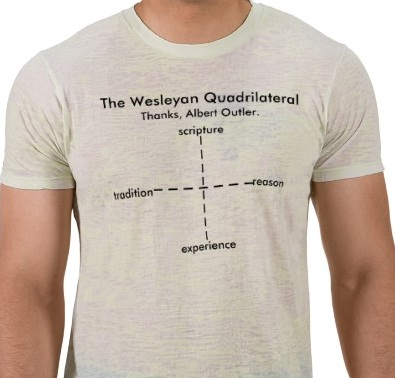“How many times did you worship at the church before you went on staff? Once, twice?” asked a friend the other day.
“Zero,” I replied.
“Huh?”
“It’s a bit complicated, but let me try and explain how United Methodist churches work…”
I’ve had the above conversation many times recently. Most of my friends from high school and college are members of Presbyterian, Baptist, or non-denominational churches. Explaining how a pastor ends up at a church in those traditions is similar to how anyone else in America ends up at a job—you’re open for a position, you find openings at churches you’d like to serve, you interview and send in reference materials, a group at the church gives you an offer, and you decide whether to accept or keep looking.
To understand how pastors end up at United Methodist churches, forget all of that.
Churches in the UMC receive new pastors through a system called itinerancy. Itinerancy is a system of church organization in which ministers are sent to local churches by a Bishop and are regularly rotated from one to another. Ministers and Bishops are all part of a geographically organized conference (mine is North GA), which is broken down further into districts. The conference limits where a Bishop can appoint each pastor to serve.
The appointments aren’t random—every year the Bishop and District Superintendents consult with those like me seeking a pastoral appointment and with each church in the conference. Through much prayer and conferencing, they then seek to determine where to send pastors so that the UMC can best live out its mission: to make disciples of Jesus Christ for the transformation of the world. The gifts of the pastor, his or her family/life situation, the needs of a local church, the needs of the denomination, and many other factors are involved in the process.

Typically, pastors find out where they’re sent via a phone call in the spring. Some are sent far away, some are sent to a church nearby, and some are asked to stay where they are. Those moving begin to envision life and ministry at a church they’ve never visited. One week in June, all the pastors who have been appointed to new churches move and begin ministry at their new churches. All appointments are made for only a year at a time. However, the average length of a UM pastor is around four years. There is also a trend towards longer appointments. You can read more about the current itinerant system here.
Many Methodist Churches in Britain, Central America, and all over the world continue to use this system that has a historical basis from Methodism’s earliest days.
The UMC website sums up the history well. “John Wesley began the itinerant system during his work in England. Wesley developed circuits for his assistants to travel, each of which included a large number of appointments. Preachers visited these appointments about once a month and changed circuits from year to year, depending on the current circumstances.”

On American soil, itinerancy adapted to the conditions at hand. Traveling preachers became known as circuit riders as they rode from one outpost to another helping organize, lead, and perform the sacraments for groups of Christians across the frontier. This system enabled Methodist preachers to reach new settlements quickly. The rapid growth of Methodism throughout the 18th and 19th centuries in America can be partly attributed to this form of organization.
“We have found by long and consistent experience that a frequent exchange of preachers is best. This preacher has one talent, that another; no one whom I ever yet knew has all the talents which are needful for beginning, continuing, and perfecting the work of grace in a whole congregation.” – John Wesley
If you are still reading at this point and you’re not a Methodist, you are probably thinking, “What a crazy system!”
If you are a Methodist congregant, you are probably thinking, “I’ve seen a lot of itinerant preachers come and go. I’ve seen some crazy ones and many gifted ones. I’m just thankful that we’ve never had a time without a pastor and that this church isn’t dependent on one person.”
If you are a Methodist pastor, perhaps like me you are thinking, “Lord, this itinerant system is counter to a culture that tells us to do what we want, look out for ourselves, and never submit to authorities. I’ve placed myself in the hands of your church—in its beauty and brokenness. I’m trusting that the Holy Spirit is present in the appointment process and that you are actively working all things together for good. Give me strength, peace, joy, and a renewed love for you and your people as I travel to a new place.”
In the future I hope to write about the strengths and weaknesses of the itinerant system. For non-Methodists, what do you think about this system? For Methodists, how have you found living within this system?
